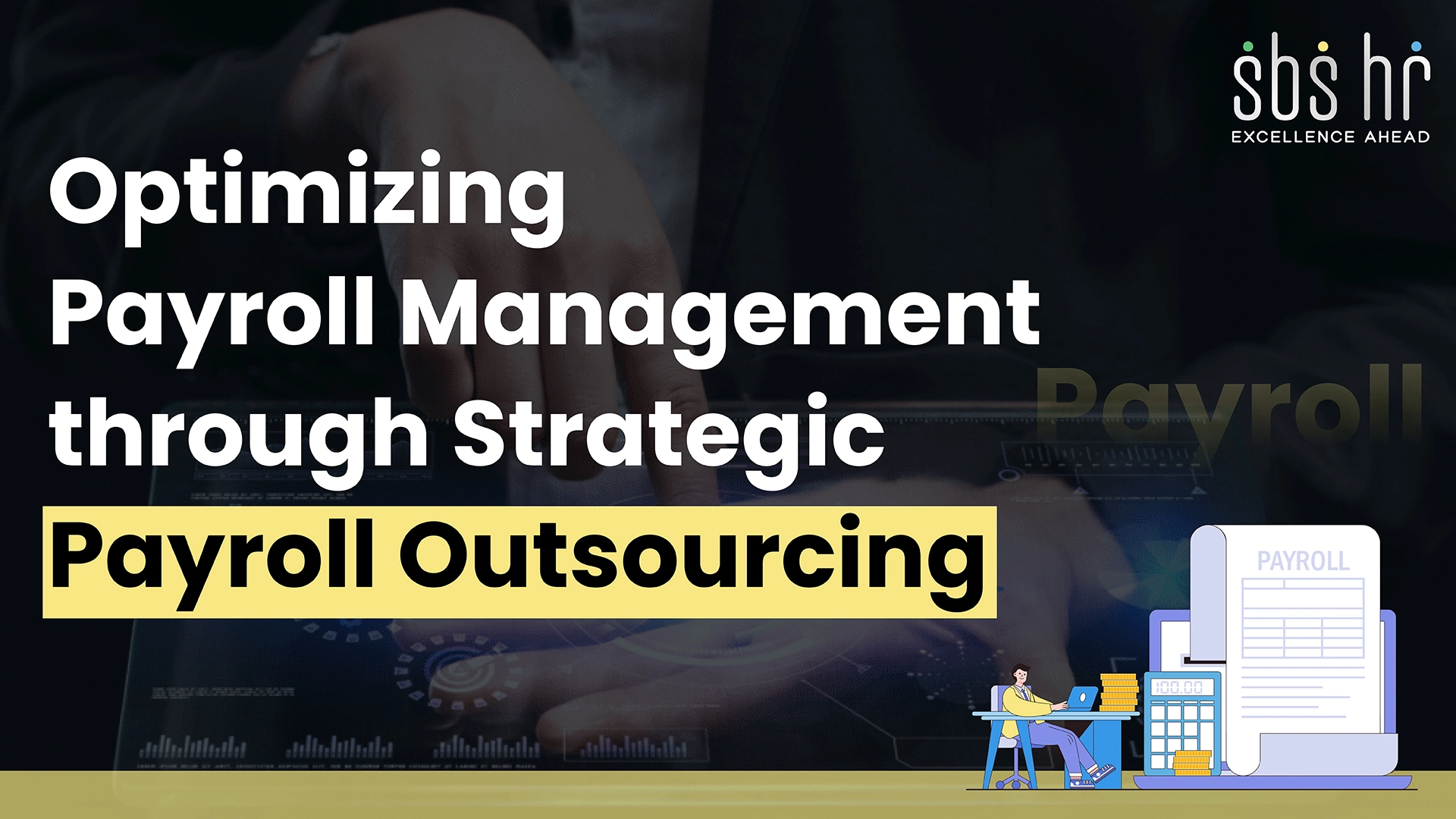In the rapidly evolving corporate environment, efficient payroll management has become critical for organizational success. Payroll outsourcing provides a strategic solution, offering streamlined payroll management services through expert third-party payroll services providers.
What is Payroll Outsourcing?
Payroll outsourcing involves delegating payroll management processes—such as salary computations, tax obligations, employee benefits administration, and compliance with employment laws—to specialized external organizations. This approach enables businesses to optimize their internal resources, focusing more effectively on their core business functions.
Key Payroll Outsourcing Models
Businesses generally adopt two major payroll outsourcing models:
- Full-Service Payroll Management Services: This involves a complete transfer of payroll responsibilities to third-party providers, covering salary processing, tax management, compliance obligations, and year-end financial reporting.
- Partial Payroll Outsourcing: Organizations selectively outsource complex payroll functions, retaining control over other simpler payroll activities, suitable for businesses requiring targeted external expertise.
Benefits of Utilizing Third-party Payroll Services
The benefits of payroll outsourcing through expert third-party providers are extensive:
- Cost Reduction: Companies save significantly on payroll-related software, infrastructure, and specialized human resources.
- Enhanced Efficiency: Payroll management services relieve internal staff, allowing organizations to focus on core competencies.
- Access to Expert Knowledge and Technology: Third-party payroll services providers bring specialized expertise and advanced technology, ensuring accurate, timely payroll execution.
- Improved Compliance and Risk Management: Providers consistently track evolving regulations, reducing compliance risks and preventing potential legal issues.
Navigating Challenges in Payroll Outsourcing
Although payroll outsourcing offers significant benefits, businesses must consider and mitigate several risks:
- Data Security: Protecting sensitive employee payroll data is crucial. Choosing providers with stringent data protection measures mitigates this risk.
- Accuracy Issues: Errors in payroll processing can lead to serious consequences. Selecting a reliable third-party payroll services provider ensures high accuracy and compliance.
- Communication and Control Concerns: Clear communication and robust reporting practices help maintain organizational control and transparency when payroll functions are outsourced.
Why Multinational Companies Prefer Payroll Outsourcing
Multinational corporations (MNCs) particularly benefit from payroll outsourcing due to its ability to efficiently handle multi-country payroll complexities:
- Focus on Strategic Activities: Payroll outsourcing allows MNCs to focus on core strategic initiatives.
- Cost Efficiency: Internal management of global payroll is resource-intensive, making outsourcing a cost-effective alternative.
- Global Compliance: Expert payroll outsourcing partners adeptly manage diverse international payroll regulations, ensuring global compliance.
Spotlight: Payroll Outsourcing Industry Trends
The global payroll outsourcing market is projected to significantly grow, driven by emerging technologies such as artificial intelligence and automation. The industry, currently valued around USD 10.02 billion, is forecasted to reach USD 24.36 billion by 2033. The integration of these advanced technologies continues to enhance payroll processing efficiency and accuracy.
Selecting an Optimal Payroll Outsourcing Partner
Choosing the right payroll outsourcing provider is crucial and should involve evaluating providers based on reliability, technology, data security, customized service offerings, and compliance capabilities. Clear Service Level Agreements (SLAs) ensure expectations and performance metrics are explicitly defined.
Implementing Payroll Outsourcing Effectively
The successful implementation of payroll outsourcing includes:
- Transition Planning: Clearly outline the project timeline, assigned responsibilities, and anticipated challenges.
- Data Migration: Ensure accurate and secure payroll data transfer and system integration.
- Employee Training: Provide comprehensive training and manage the organizational change effectively to facilitate a smooth transition.
Ensuring Compliance and Maximizing ROI
Consistent auditing and compliance monitoring are essential to successful payroll outsourcing. Additionally, conducting detailed cost-benefit analyses and evaluating return on investment (ROI) allows organizations to quantify the value derived from payroll outsourcing accurately.
Linking Payroll Outsourcing to Real-world Success
Two informative case studies highlight the practical benefits of payroll outsourcing:
A comprehensive case study by SSON illustrates successful end-to-end payroll implementation, showcasing increased consistency and efficiency across multiple locations. Read More
GPA’s insights into calculating real payroll costs emphasize how payroll outsourcing effectively reduces overhead costs, enhancing overall business cost-efficiency. Read More
Debunking Common Payroll Outsourcing Myths
Contrary to misconceptions, payroll outsourcing is beneficial for businesses of all sizes, enhancing rather than diminishing control and ensuring robust data protection through reputable third-party payroll services providers.
Conclusion
Payroll outsourcing stands as a valuable strategic resource, delivering enhanced efficiency, significant cost savings, and compliance assurance. By selecting an appropriate payroll management services provider and strategically implementing outsourcing solutions, organizations can optimize payroll processes and secure long-term business growth.


